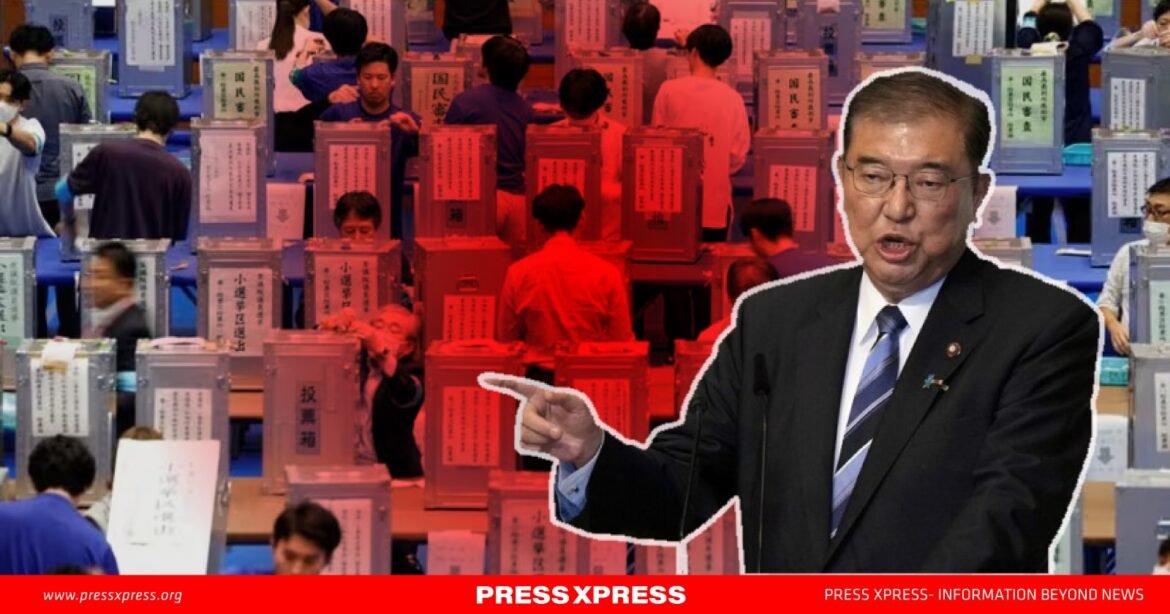Exit polls indicate that Japan’s ruling Liberal Democratic Party (LDP) and its coalition partner may face a critical shortfall, with estimates ranging from 174 to 254 seats out of 465 in the lower house of parliament.
This potential loss of majority raises questions about the stability of the world’s fourth-largest economy’s government.
An NHK poll on Sunday, 27 October, highlighted that the LDP, which has dominated Japan’s political landscape post-World War II, could struggle alongside its junior coalition partner.
Meanwhile, the main opposition, the Constitutional Democratic Party of Japan (CDPJ), is projected to secure between 128 and 191 seats, suggesting a need for power-sharing agreements for either party to govern effectively.
A separate Nippon TV poll estimates the ruling coalition would claim 198 seats to the CDPJ’s 157, both short of the 233-seat majority threshold, with public frustration over inflation and funding scandals contributing to the outcome.
Shinjiro Koizumi, the LDP’s election chief, acknowledged the challenging results, while Prime Minister Shigeru Ishiba’s path to securing a parliamentary majority with the Komeito party remains uncertain.
Ishiba, who assumed office on October 1 following the resignation of Fumio Kishida amid a funding scandal, called for a snap election aiming to bolster support. In his final campaign speech, Ishiba apologized for his party’s financial missteps and promised a fairer and more honest approach, asserting that the LDP’s governance experience is crucial for Japan’s stability.
Yet, voters frustrated by rising costs and a political scandal linked to a party slush fund remain skeptical.
With some analysts speculating on Ishiba’s potential resignation, he could become Japan’s shortest-serving post-war prime minister, just narrowly beating the record of Naruhiko Higashikuni, who served for 54 days after World War II.
Critics argue the LDP’s policies often favor those with financial clout while neglecting vulnerable citizens. Observers suggest Ishiba’s leadership faces the challenge of breaking from the legacy of former Prime Minister Shinzo Abe, whose focus on security and trade left social equality by the wayside, entrenching issues of privilege and corruption.
According to the University of Tokyo’s Izuru Makihara, the backlash against the slush fund scandal reflects a growing public demand for fairness and resistance to privileges within Japan’s political sphere.


